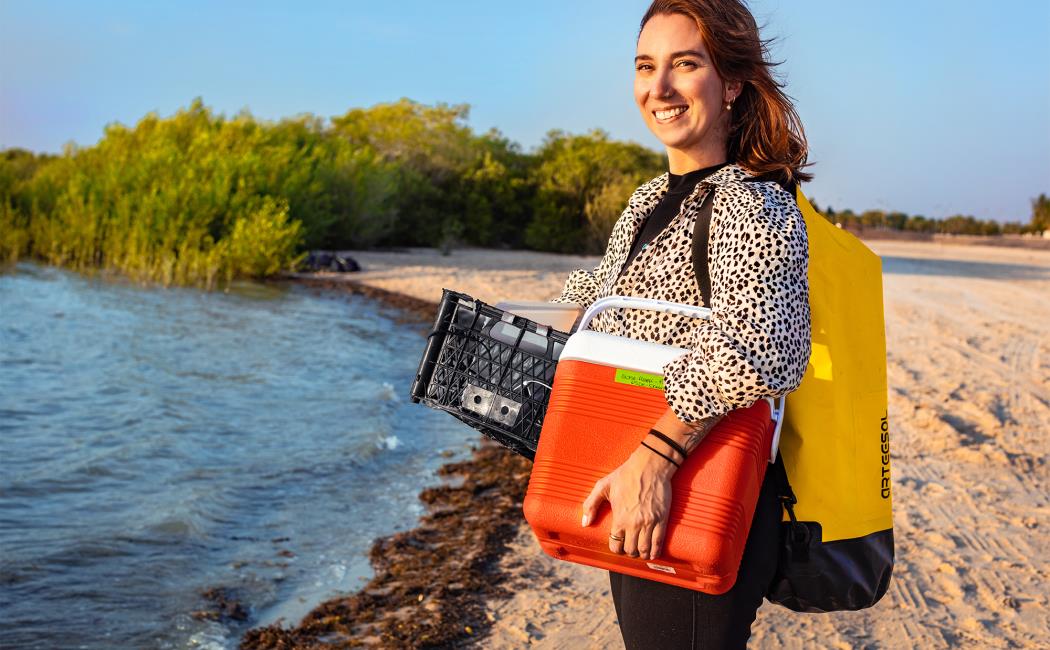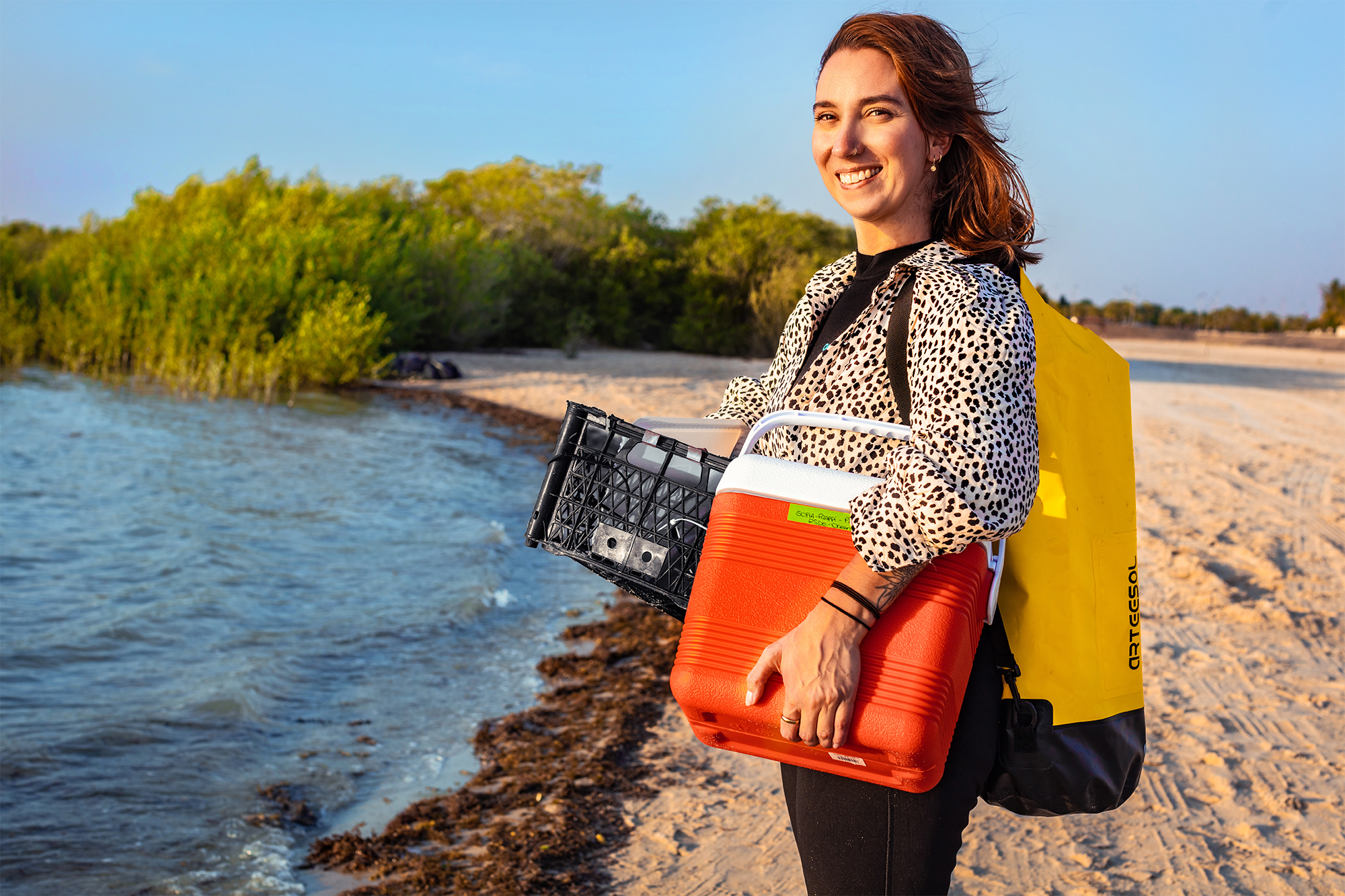


14 February, 2023
There are new things to learn from each sample of sediment that I collect.

My work is probably best summarized as biodiversity assessment. I study marine ecosystems to evaluate their biodiversity using the DNA that I find there. At first glance, it may appear that there is nothing of interest in each small sample of sediment or vial of water that I collect. But, by analyzing the DNA in the samples, we can tell what species have been in that ecosystem.
Environmental DNA (eDNA) analysis is a relatively new technique that is improving rapidly. Every year, the datasets you can generate get bigger. Nowadays, you can even screen for unknown organisms that have a very low proportion of DNA in the sample. I love that I am a part of developing a method that can be applied across a huge range of habitats, from detecting newts in a river, to hunting giant squid in the Antarctic Ocean.
Since starting my postdoc, I have been at sea for five of the 10 months. At the beginning of 2022, we took part in an ambitious expedition: the Red Sea Decade Expedition. On the OceanXplorer research vessel, we used submarines and helicopters to get to literally every corner of the Red Sea. Being in a submarine, collecting samples, is my favorite type of fieldwork.
I am a hands-on person, so I enjoy being outside in the field, working on the ocean. I also enjoy working in the lab, where I am equally fascinated by the infinite amount of information that a small tube can contain.
For me, the most enjoyable moment is when I get the results from the DNA sequencing — when I see the first graph, the first ecosystem community analysis. This is when the uniqueness of each ecosystem becomes visually apparent. The next part of the puzzle is to explain differences across ecosystems.
Being part of an expedition as big as the Red Sea Decade Expedition has supplied me with samples to analyze for a long time.
As my career progresses, I want to fight to protect ecosystems and biodiversity by helping to make ecosystem assessment easier and faster. What we don’t have in the world of climate change is time. If I could be a part of that movement, that would be cool.